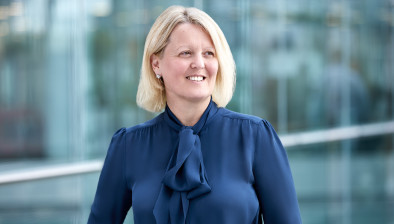Andy Todd: Connecting with peers to solve problems and shape business growth

Andy Todd
Andy Todd, business coach and facilitator of the new Edinburgh group of The Alternative Board (TAB), discusses the benefits of communication between businesses.
The maxim ‘a problem shared is a problem halved’ is one of our defining principles at TAB.
Sharing experience and knowledge in a peer-to-peer group is what we do best. By providing a unique space for business leaders to discuss their issues and challenges – members learn from each other on where solutions might lie and how to transition from idea to implementation.
Being part of a group has become especially important in recent months as many in the business community have inevitably experienced a sense of isolation – of being remote from the conventional forms of professional engagement that can prove invaluable in helping them assess and overcome problems.
Like-minded business owners and leaders always welcome opportunities to benefit from connecting with others in a mutually supportive environment to exchange lessons learned, good practice and ideas
The first – virtual – meeting of our TAB board in Edinburgh provided some fascinating insights into how these interactions make a difference. As a TAB facilitator, it’s my role to chair such meetings and the inaugural one for some leading players in the capital’s business community yielded discussions around three highly relevant topics – and could prove transformational for the members which instigated them.
People was the big talking point. The first involved a start-up enterprise looking to bring a technical manager on board to enable the co-founders to focus their energies on strategic growth rather than day-to-day operations.
The advice from peers around ‘the table’ stressed the need for the company to develop and promote core values as a means of integrating the new manager. As individuals across the wider team assumed greater accountability, buy-in and motivation were also highlighted as key focus areas. The company is now planning an employee-focused brand exercise – a tangible outcome from the meeting that will position the business to move forward, with all involved.
The people theme continued for another business. This time the appointment of a senior member of staff to support its growth strategy. Managing and maximising day-to-day operations, this role has potential to move to director level. The key principle to emerge from the ensuing discussion was trust. How to find the right person with the right attributes, while ensuring they will be ready to work to a shared vision – especially during a time of remote engagement?
The member in question valued the board’s suggestions on making better use of her network of trusted contacts or introducing the role into the business on a phased basis.
Finally, one member was exploring how to create a management team within his business to support development planning. The key advice from his peers was to start the process of creating a new culture across the business. This would involve establishing core values, setting personal goals for individual team members to identify potential management recruits and formulating a training framework and budget. His key takeaway from the meeting: ‘I forgot how important it is to step back in order to move forward.’
Just three instances of how engagement with peers can elicit more than abstract advice and guidance, it can yield thought-provoking ideas or very practical suggestions that all support growth ambitions.
It highlights that it’s not just good to talk, it’s positively beneficial.







